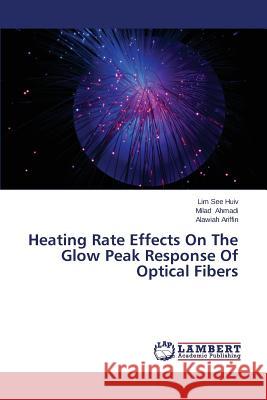Heating Rate Effects On The Glow Peak Response Of Optical Fibers » książka
Heating Rate Effects On The Glow Peak Response Of Optical Fibers
ISBN-13: 9783659667770 / Angielski / Miękka / 2015 / 68 str.
This research mainly is to investigate the effects of heating rate on the glow peak TL of optical fibers. Four kinds of optical fibers were investigated: pure silica (SiO2), germanium boron (GeB), 6% germanium (Ge) and TLD 100. The result indicates that the normalized TL response decreases with the increasing of heating rate. Also, it is recommended to use higher dose during TL measurement because of its higher normalized TL response. Some responses of glow peak parameters, such as peak integral, activation energy, maximum peak temperature were also evaluated in this study. The result found that the peak integral and activation energy were fluctuating throughout the glow curve denoting their sensitivity to heating rate whereas the maximum peak temperature was remaining constant thus indicate that it is independent of the heating rates. Lastly, the result described that the time taken for peaks to appear was inversely proportional to the heating rate.
This research mainly is to investigate the effects of heating rate on the glow peak TL of optical fibers. Four kinds of optical fibers were investigated: pure silica (SiO2), germanium boron (GeB), 6% germanium (Ge) and TLD 100. The result indicates that the normalized TL response decreases with the increasing of heating rate. Also, it is recommended to use higher dose during TL measurement because of its higher normalized TL response. Some responses of glow peak parameters, such as peak integral, activation energy, maximum peak temperature were also evaluated in this study. The result found that the peak integral and activation energy were fluctuating throughout the glow curve denoting their sensitivity to heating rate whereas the maximum peak temperature was remaining constant thus indicate that it is independent of the heating rates. Lastly, the result described that the time taken for peaks to appear was inversely proportional to the heating rate.











